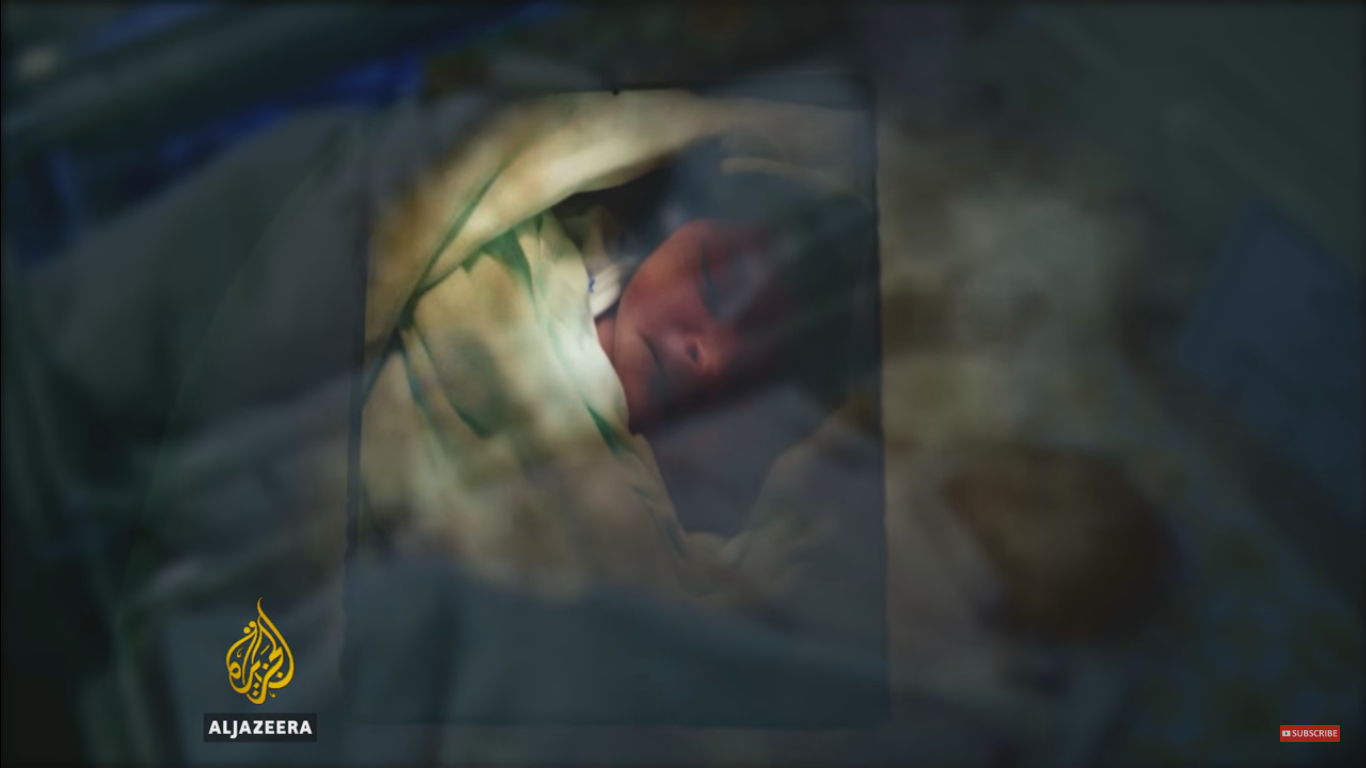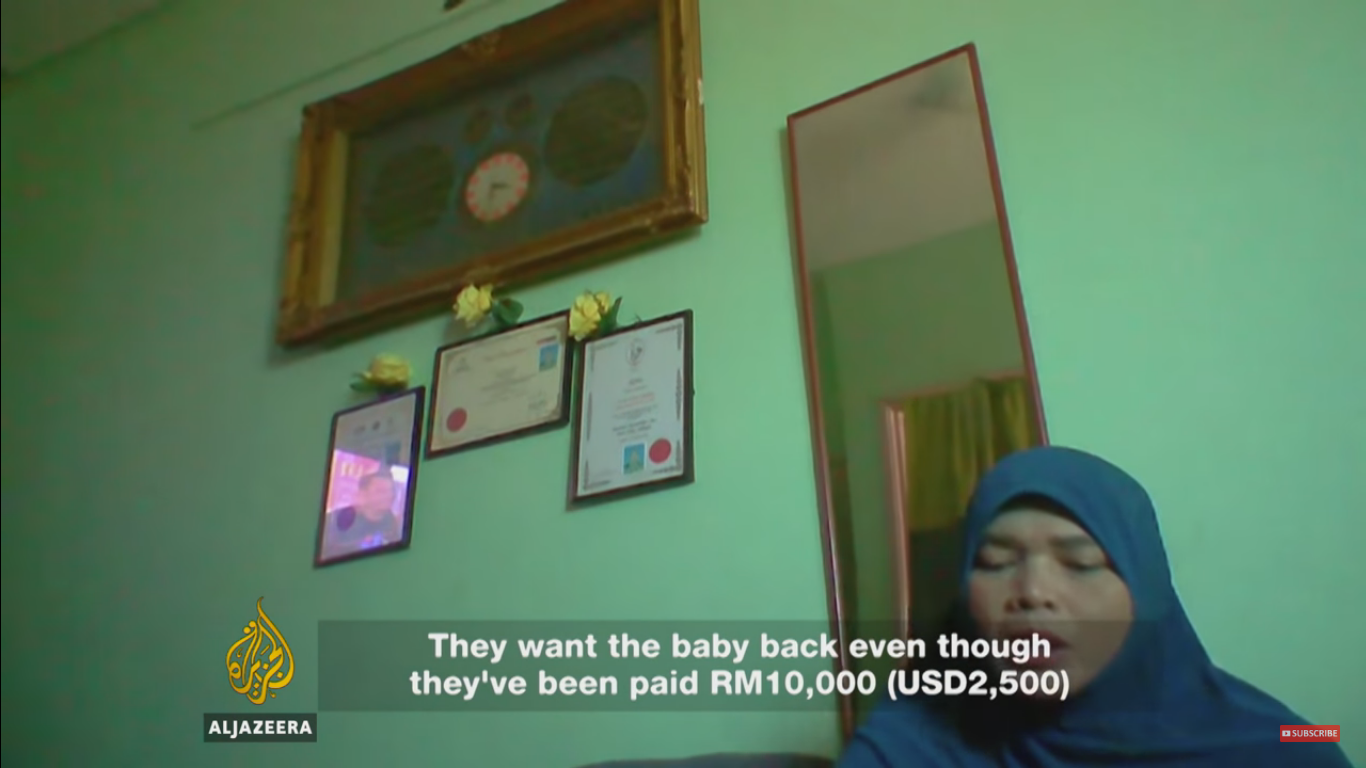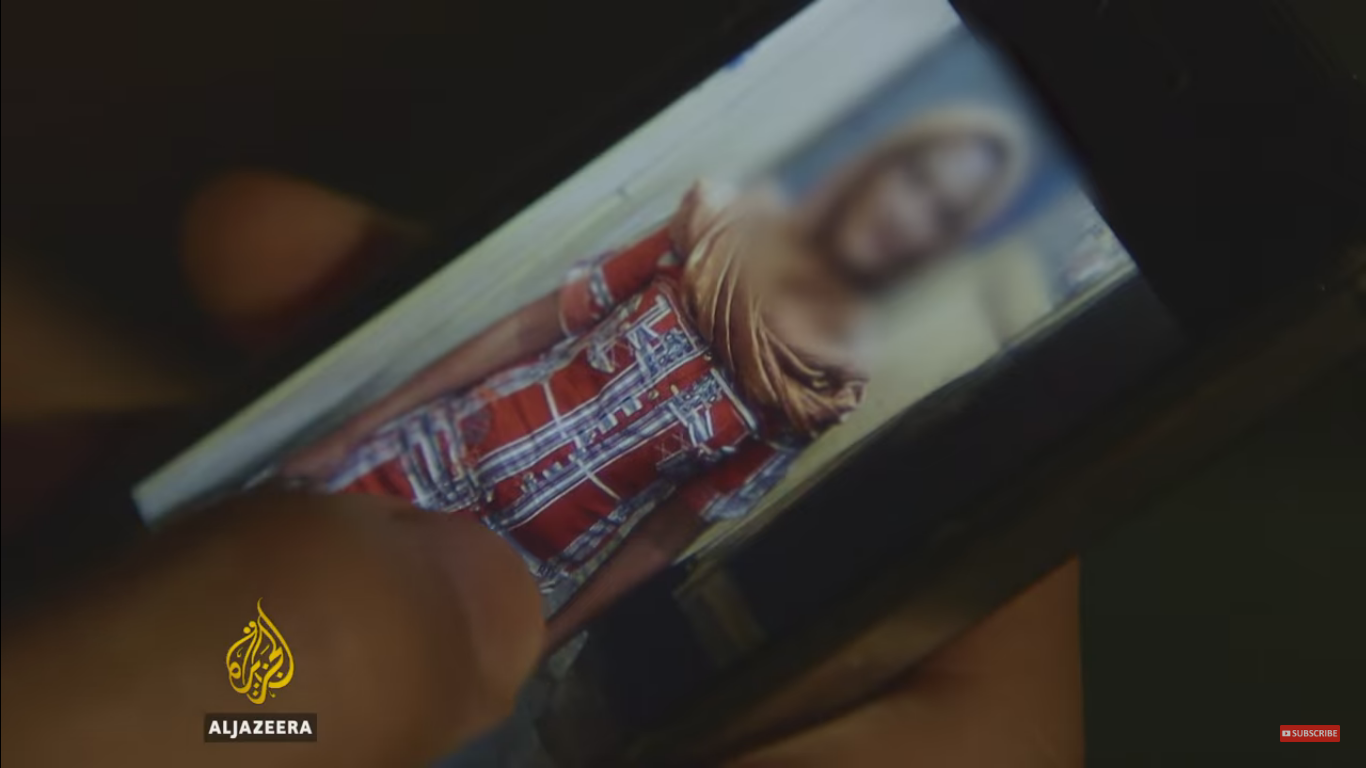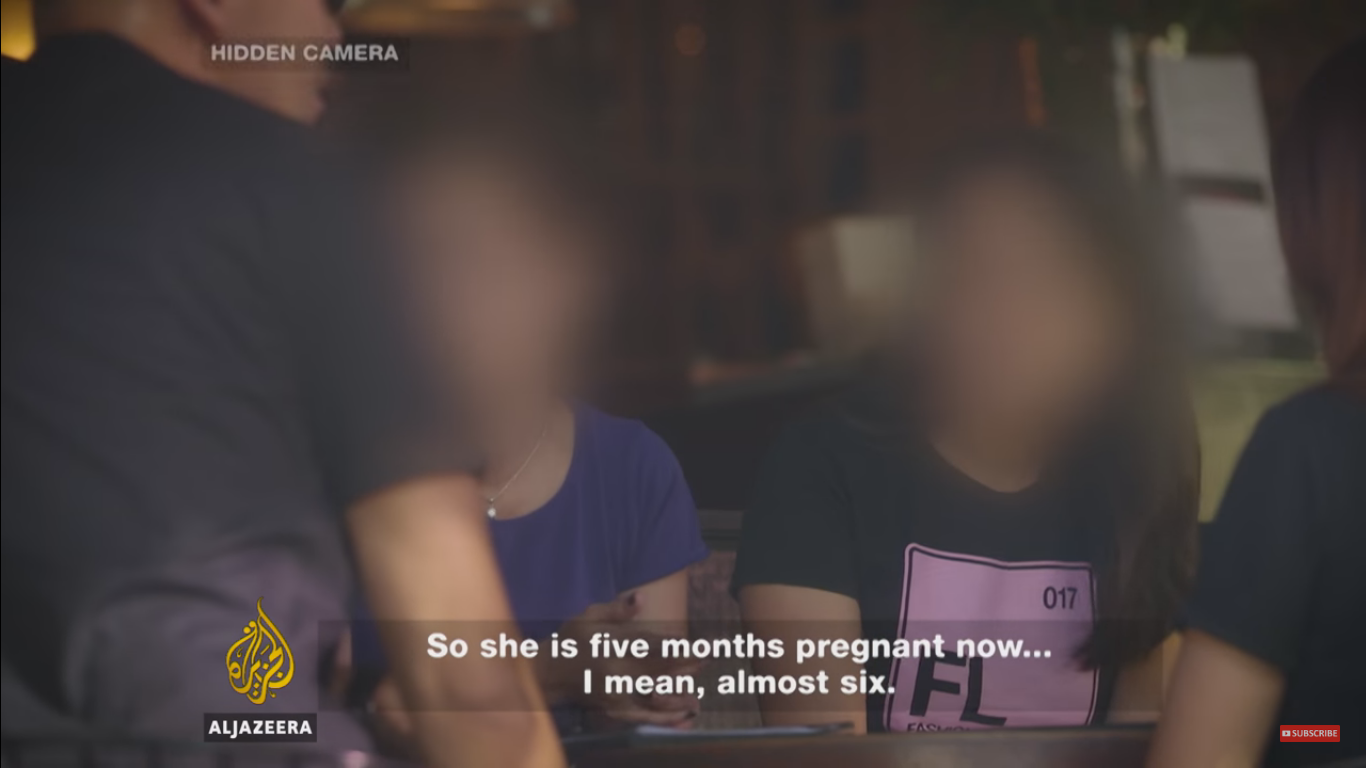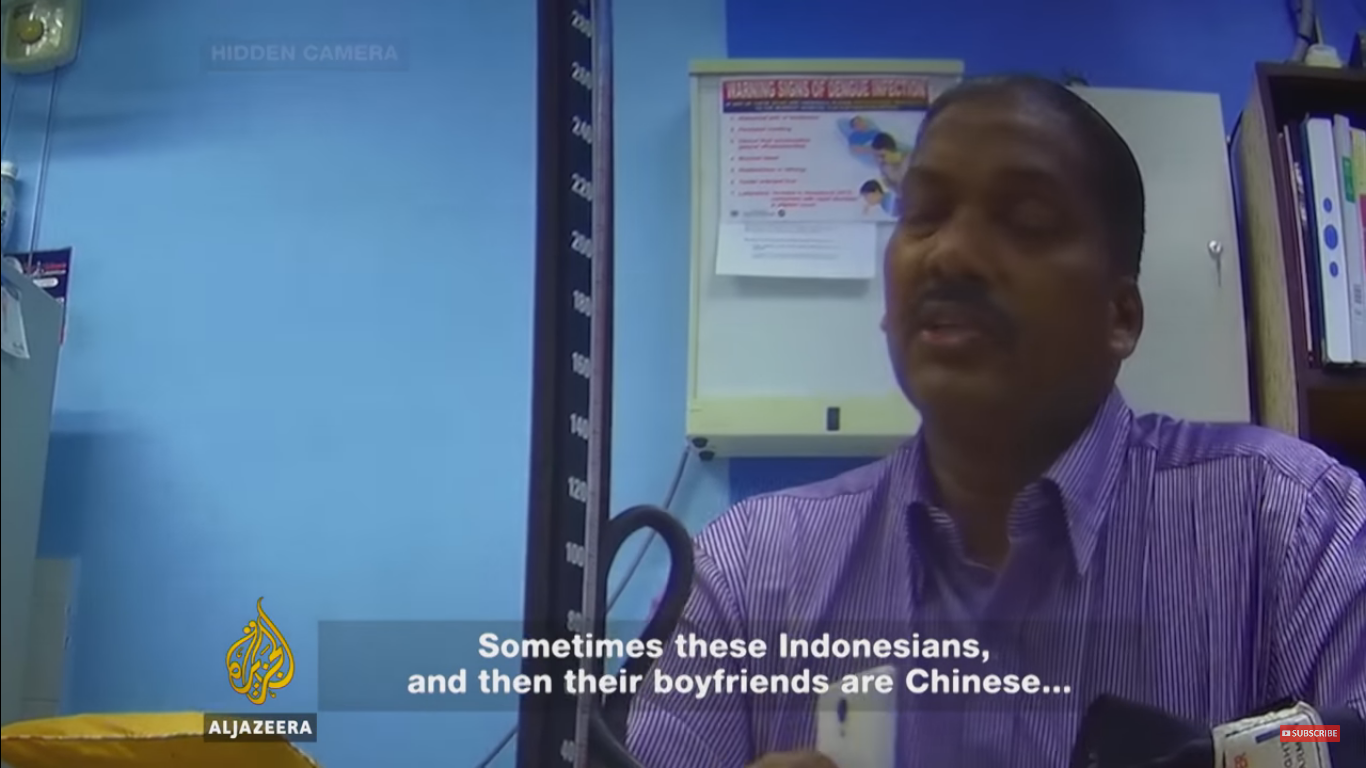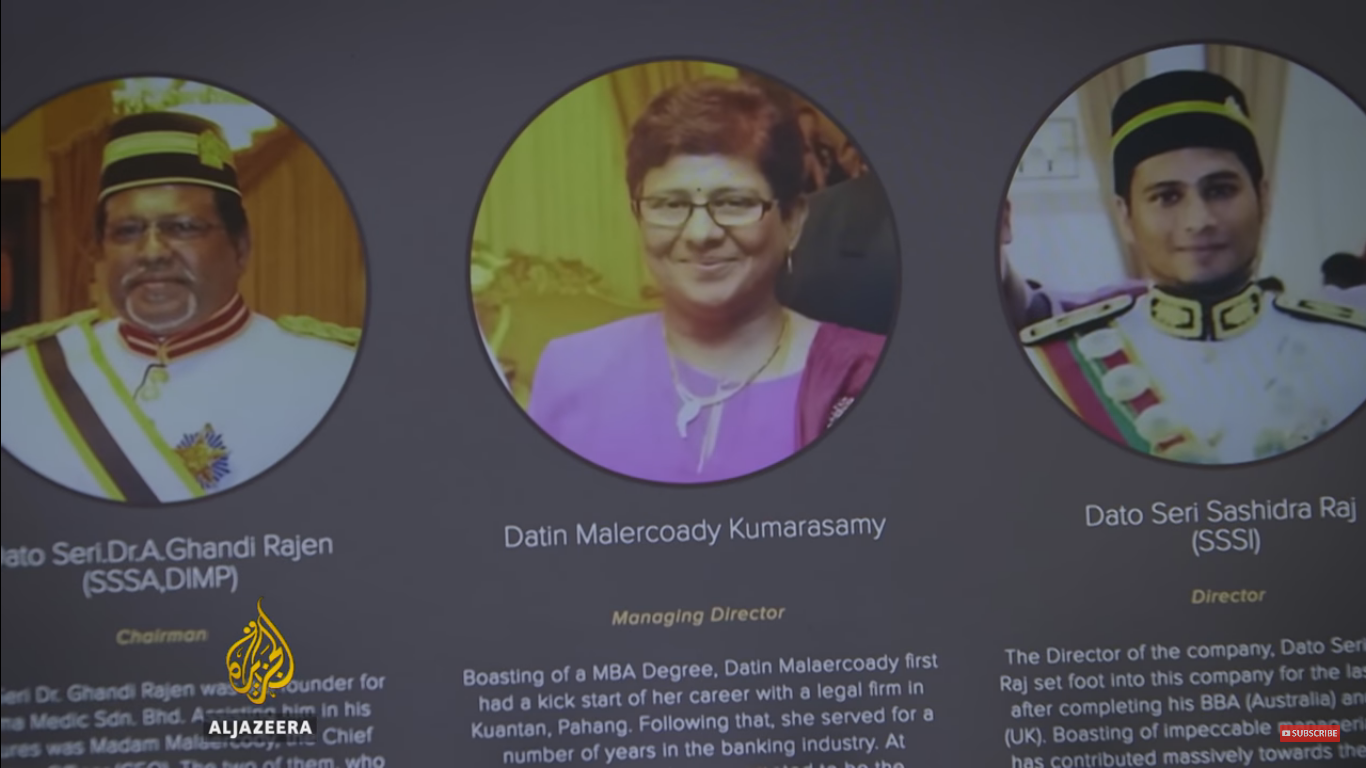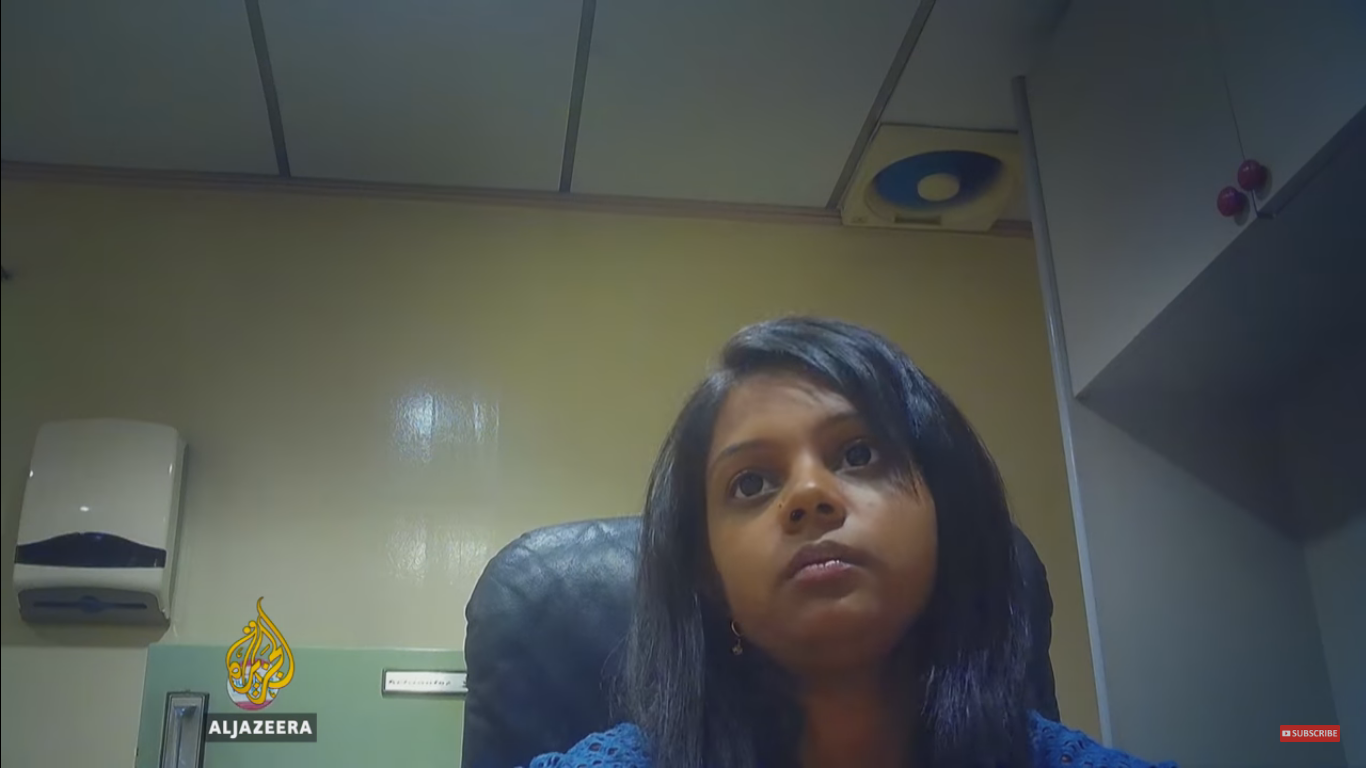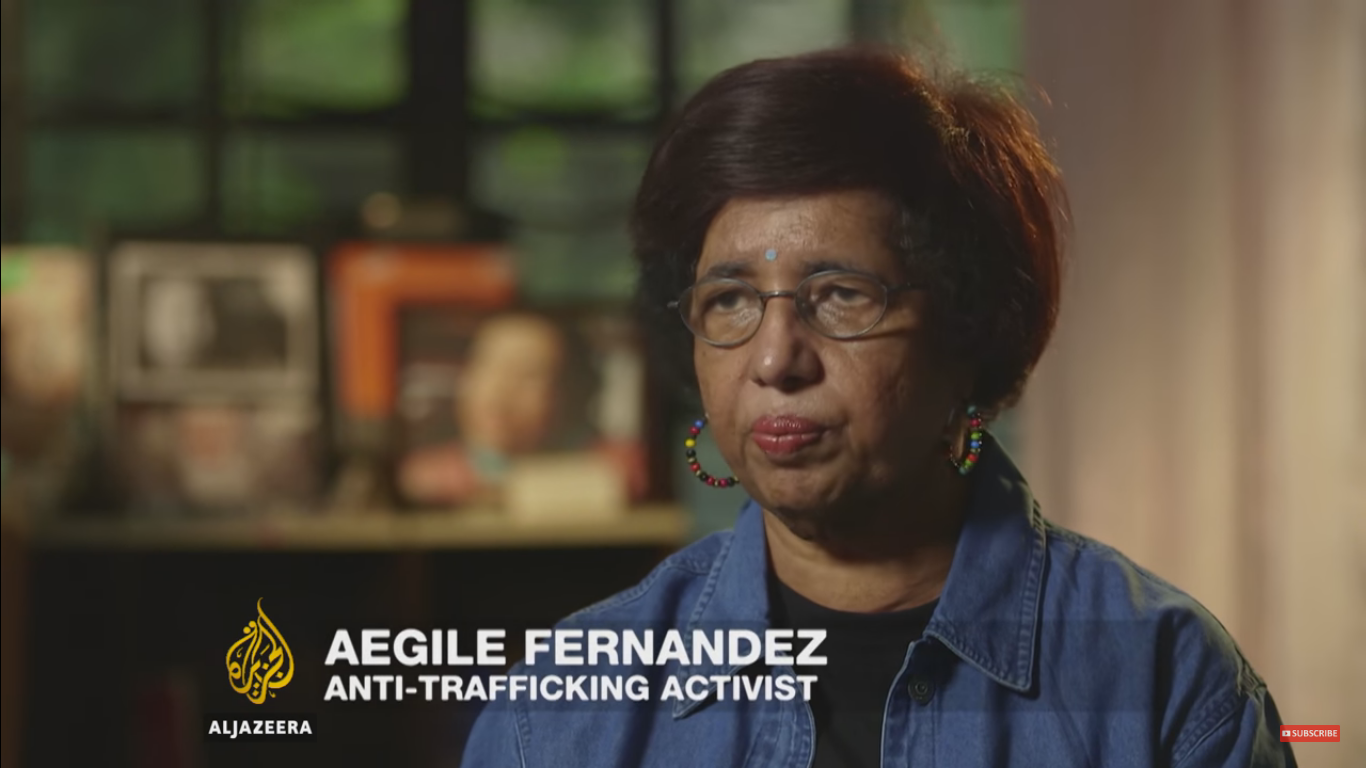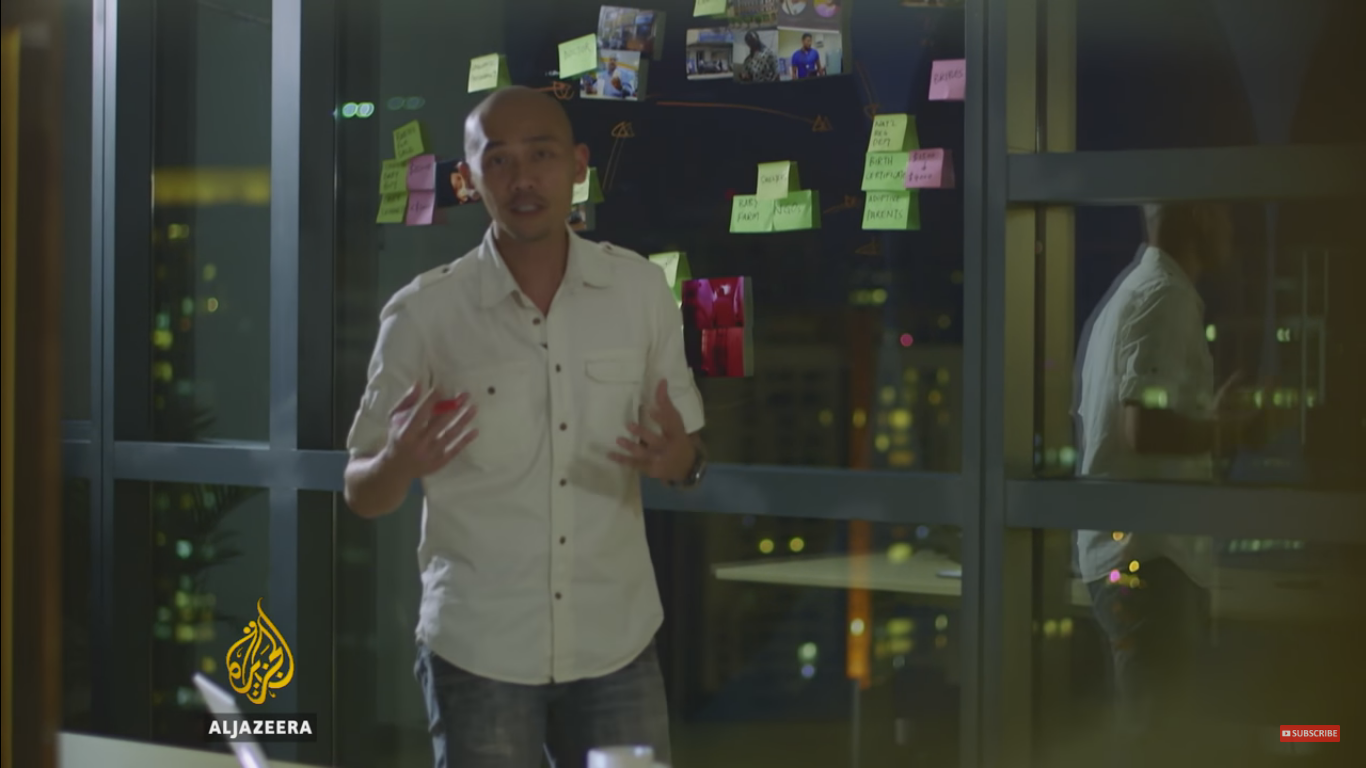Al Jazeera Uncovers The Horrifying Truth About How Babies Are Sold In Malaysia
A baby can cost more than RM30,000 in Malaysia.
It is common knowledge that legal baby adoption in Malaysia is a long, emotional and arduous process.
It involves years of paperwork, trips to adoption centres and all that effort can sometimes go to waste, with potential parents forced to start all over again.
The harsh reality has opened up a whole new trade in Malaysia - baby selling.
An exclusive documentary by Al Jazeera's 101 East programme has revealed how a network of people that involves doctors, government officials and traffickers run the lucrative baby selling trade in Malaysia.
In the 25 minute-long documentary that aired yesterday, 24 November at 10.30pm, Al Jazeera's undercover journalists, Chan Tau Chou And Sarah Yeoh, get in touch with individuals who are the mastermind behind this heinous trade.
They managed to speak to Hartini Zainudin, a local child's right activist who explained how she was pulled into the baby selling industry in Malaysia. She "adopted" her daughter, Zara, when the child was just three months old but it was no normal adoption.
It was a phone call she received eight years ago that brought young Zara to her. "I have a reputation for picking up all these babies, so they told me about this baby who is in Klang that needed a good home," explained Hartini.
That phone call changed everything. Only after getting to the meet up point and being told that she was supposed to pay a certain amount to actually take the baby home, that Hartini realised she was dealing with traffickers who intended to sell the baby to her.
When she arrived in Klang, she met the baby girl and was told a Malaysian couple had initially agreed to buy the baby for USD5,000 (RM22,212) but had changed their mind after seeing the child because the baby's skin was too dark. Left with little to no option, the traffickers were willing to sell the baby for a much cheaper rate, at USD3,000(RM13,327).
"She said, if you don't take her, I'm going to take her to Pulau Ketam and we're going to send her to Thailand," recalled Hartini. Confused, she called a friend of hers from another NGO to find out the fate of the baby if she were to be sent to Thailand.
The reply she got was shocking. The baby will be maimed and sold into the begging trade. Frazzled, Hartini paid the amount the traffickers asked for and bought the baby and made a report about the matter to the police and the social welfare department.
Unfortunately, the traffickers escaped arrest. Meanwhile, Hartini decided to adopt Zara and 101 East described the process as long, expensive and emotionally draining. After eight long years, Hartini was finally able to be Zara's legal parent.
Sadly, that is just the first part of the lengthy process. Zara is still not a Malaysian citizen.
"We've been running around in circles for the past three years - it took me five years to get her birth certificate and another three years to put in her application for citizenship and I'm still waiting," explained Hartini.
The eight-year-old has no access to public education and healthcare, won't be able to apply for a passport, open bank accounts, will not be allowed to get married legally and that is just the tip of the iceberg.
"It's a huge problem in Malaysia, it happens within the country - babies are exported to Singapore, etc. and babies are brought in from Thailand and Cambodia," added Hartini.
The highly complex legal adoption process in Malaysia has only made it easier for these opportunists to make millions by selling babies.
Childless couples that are desperate to start a family have turned to illegal means to adopt a baby.
Traffickers are ever-ready and have been hiding behind the shield of anonymity that the digital world provides to sell babies to potential parents.
"They are getting more sophisticated definitely, you can do it online, choose your baby online," said Hartini.
Most of the babies for sale are of Malay, Chinese, and Chindian descent. "It's like a supermarket."
Al Jazeera says that Facebook is filled with groups that are involved in the baby selling trade - from offering adoption services to helping mothers sell their unwanted babies, people are given countless options that can bypass all the complexities of legal adoption in Malaysia.
A baby's price tag is determined by three main things - gender, skin colour and race. The golden pedestal is set for mixed-race babies.
Lighter skin male babies are sold for the highest prices, while dark skinned, female babies go for lower prices.
Delving deeper into the dark, sickening world of baby selling in Malaysia, Al Jazeera got in touch with a suspected baby seller named Bonda.
They send their undercover journalists posing as potential parents that are interested to buy a baby to Bonda. There, they discover an intricate web that is world of baby selling. They meet her in an unnamed town in the West Coast of Malaysia.
Wired up with microphones and hidden cameras, the journalists have a chat with Bonda who makes some shocking revelations about her "job".
First and foremost, she only sells babies of Indonesia women and does not work with local women, citing their indecisiveness as the reason.
"They want the baby back even though they've been paid RM10,000 (USD2,500) or RM7,000 (USD1,800) sometimes. That's why I stopped using locals this year, since two months ago... I don't want locals, only Indonesians.
"I have dealt with more than 1,000 Indonesians with no problems. They never ask where their children go after giving them up," explained Bonda. Al Jazeera finds out that it costs up to USD2,500 for a baby and the price is inclusive of the payment for the falsified birth certificate.
Curious to uncover more details on Bonda's baby-selling ring, the journalists ask her how many mothers are under her "care" now.
Her reply is shocking - 78 biological mothers and that number does not include the newborns.
They try asking her about the location of these mothers, but she dodges the question, not revealing any specific details about their whereabouts.
She deviates the conversation, trying to sell the journalists a baby for the price of USD1,500 (RM6,699). According to her, about eight people have already asked for the baby. They leave, telling her that they need more time to mull over the decision.
The journalists return three weeks late, bearing food supplies for the pregnant woman. Seizing the opportunity, Bonda brings in four pregnant women, two of which the Al Jazeera journalists describe as looking like "teenagers".
The "meet and greet" session with the pregnant mothers turn informational as Bonda reveals the legalisation of the baby selling trade.
"I will prepare a letter of agreement. You have to prepare it too and it has to be based on mutual agreement," explains Bonda, adding that the statutory declaration will be signed by the police who will act as the witness.
"You need an insider in the police to make it easy. Just need them to sign and it's done," she adds.
Determined to make her profits, Bonda sends the journalists photos of mothers in various stages of pregnancy, asking for a fee for more information.
Not wanting to take more risks, they cut all communication with her.
Some of the pregnant women under Bonda's "care" that are willing to sell their babies.
Image via Al JazeeraContinuing with their investigation, they find more "shelters" housing pregnant mothers that are trying to run away from the social stigma attached to pregnancies out of wedlock.
The documentary explains how most of these women have run away from their homes or kicked out by their families.
"They stay out of the public eye, often coming out only at night - living secret lives until their babies are born," says journalist Chan Tau Chou.
In the course of their investigation, they stumble upon another potential baby seller - a pregnant mother who used to work as a maid in Malaysia till her work visa expired. The Malaysian law does not allow migrant workers to have babies here. They meet a group of young Filipino women, including the pregnant mother, *Jane.
After a little chat, the women quote a price of USD2,000 (RM8,884) for the baby and that doesn't include the cost for monthly check ups and delivery.
Names have been changed for privacy reasons.
The next major step lies in acquiring the paperwork for the baby to ensure that he/she doesn't end up stateless.
"If you have plans to adopt the baby, it should be under your name so that everything is alright," explain the women.
The find out that they need to find a doctor that is willing to change the name of the parents to that of the adoptive couple from the biological mother. The documents will then be submitted to the National Registration Department (JPN) which will issue a birth certificate with the name of the adoptive parents.
This opens up a whole new can of worms. As they delve deeper into the web of lies and deceit, they meet Dr Pannir, who does it all - from finding the baby to falsifying all the necessary documents.
When they tell him that they'd like a Chinese baby, he says, "Chinese babies are expensive. They charge about RM30,000 (USD7,500). RM30,000 for the baby alone." His services will cost another RM20,000 (USD5,000) which includes the birth certificate and delivery charges.
Dr Pannir tells them that Chinese babies are difficult to get. So, he provides them with an alternative - Vietnamese babies.
"Vietnamese are also okay, isn't it? They look like Chinese."
When asked about his wide range of connections, he says he's got plenty, adding that, "In Malaysia, can do everything. Money can do anything. Malaysia is the second most corrupt...".
He continues to assure the undercover journalists about the paperwork and how it wouldn't pose any problem to them.
"Boss, once the certificate is in your hands already, okay. That's all. Keep quiet," says Dr Pannir.
With the extensive amount of evidence they've amassed, Al Jazeera once again gets in touch with Bonda and Dr Pannir as journalists. The duo deny their involvement in the baby trade and decline any further questions.
Al Jazeera's trail of information and evidence takes them to the treacherous world of medical professionals and authorities that play a major role in the baby selling trade in Malaysia
It leads them to Ghama Medic Sdn. Bhd. which is owned by one Dato Seri Dr. A. Ghandi Rajen. The chief executive officer is his wife, Datin Malaercody Kumarasamy and its director, his son, Dato Seri Sashidra Raj.
Ghama Medic is said to own about five clinics and Al Jazeera heads to one of it, Klinik Bersalin Lam, which is managed by the owner's daughter-in-law, a medical doctor.
Posing as potential baby buyers, they are quickly briefed by Shashidra's wife on the fees and process.
"So, RM2,500 (USD625) is the delivery charge, and the birth certificate (BC) charge will be RM7,000 (USD1,750)," she says.
What's shocking is the fact that she nonchalantly says that the parents don't have to be nervous as they do this on a very regular basis.
The undercover journalists are further assured by her husband, the director of the medical group.
She tells them that she will provide them with a birth certificate, immunisation card and the appointment card which the parents will have to submit to JPN.
Following which, with money and connections, certain officers in JPN will legalise the documents.
"We have one officer, in each of these JPNs - we've got about eight whom we pay. So, we will tell you the date, the time and which JPN to go to," explains the eager doctor.
That one clinic alone has an average of 30 deliveries a week. Meanwhile, her husband laughingly explains that even if the forms and application sent to JPN are rejected, the clinic will just pay them off for about RM1,000 to RM2,000 (USD250- 500).
"We've done this for more than 30 years already," he adds confidently, saying that they have been an active part of baby selling since his dad's time.
Armed with startling discoveries and evidence of longtime corruption and illegal activities, journalist Chan Tau Chou approaches Ghandi Rajen for an official reply on the matter.
"I don't have time. You suddenly pop in, just like that," says Ghandi, refusing to answer any questions or to schedule an appointment to speak about the matter.
Interestingly enough, it wasn't just Ghandi that refused to comment on the matter. JPN too refuses to respond to allegations of corruption in its organisation.
Al Jazeera meets anti-trafficking activist, Aegile Fernandez who thinks that the problem lies with the lack of law enforcement. She talks about how tonnes of women fall prey to this trade.
"Women were being brought in for the purpose of a job, but they were then kept locked up, raped and then the babies were being sold," she explained.
She reveals that it wasn't just unwilling mothers that were selling their babies. Sex workers too started selling their babies when they get pregnant accidentally, instead of aborting it due to the money they can make from it.
"So, now you have a trafficker who makes triple the amount of money," says Fernandez.
The journalists also find out that pimps play a major role in this baby selling industry. A pimp they meet, tell them that there are Chinese agents who bring in women from China to Malaysia for this purpose. They soon discover that with money, anything is possible.
The investigation gets more disturbing, as the pimp tells them that they could even choose a sex worker to impregnate, so that the child is partially, biologically theirs.
While this sickening baby selling trade may seem like it is helping mothers with unwanted pregnancies and childless couples, journalist Chan Tau Chou says that the focus is always on money - the price tag on the baby
He says that none of these people actually find out if these baby buyers would provide a safe and healthy environment for the babies.
"If they are lucky, the children end up in good homes, but those who don't may be groomed for paedophiles or exploited by begging syndicates," adds Chan.
